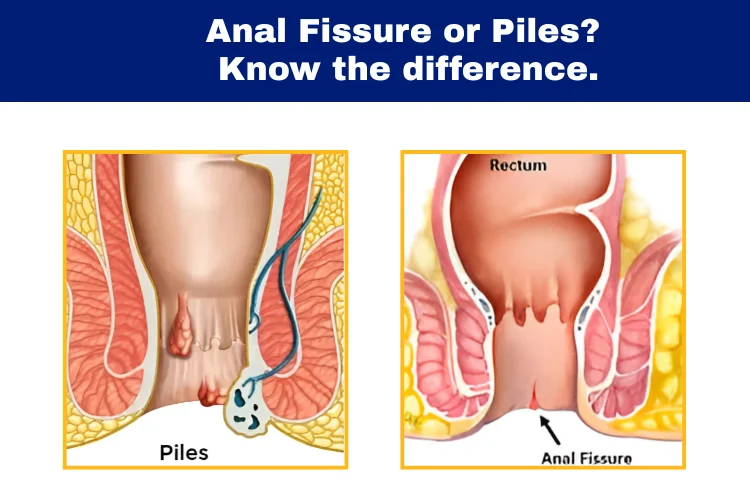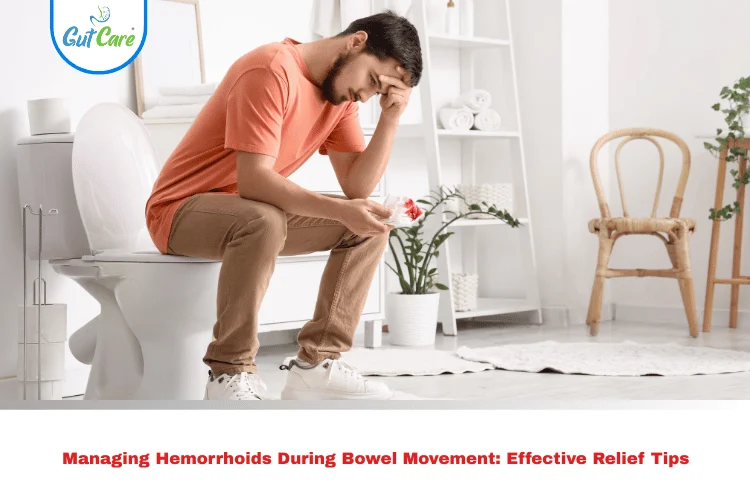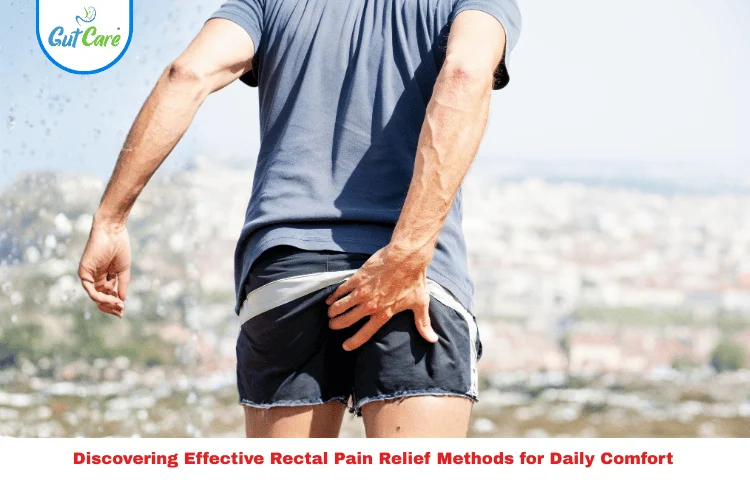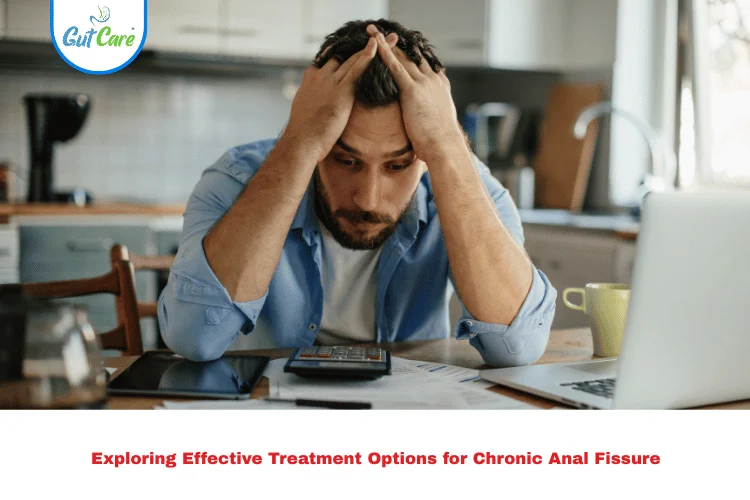Many people experience discomfort in the anal region and immediately assume it’s piles. However, anal fissures and piles are two different conditions with distinct causes, symptoms, and treatments. Understanding the difference between anal fissure vs piles can help you seek the right treatment and avoid complications.
What Are Anal Fissures?
An anal fissure is a small tear in the skin lining the anus. It often causes sharp pain during bowel movements and may lead to bleeding. Anal fissures are usually the result of passing hard or large stools or frequent constipation.
Common Symptoms of Anal Fissure:
- Sharp, burning pain during or after bowel movements
- Bright red blood on toilet paper or stool
- A visible crack or tear near the anal opening
- Itching or irritation around the anus
What Are Piles?
Piles, also known as hemorrhoids, are swollen veins in the lower rectum or anus. They can develop inside the rectum (internal) or under the skin around the anus (external). Piles are more common than anal fissures and can result from straining during bowel movements, chronic constipation, pregnancy, or obesity.
Common Symptoms of Piles:
- Painless rectal bleeding (especially during bowel movements)
- Swelling or lumps near the anus
- Itching or discomfort in the anal region
- Mucus discharge or soiling
Key Differences Between Anal Fissure vs Piles
| Feature | Anal Fissure | Piles |
| Cause | Tear in the anal lining | Swollen veins in the rectum or anus |
| Pain | Sharp and severe during bowel movement | Mild discomfort or painless |
| Bleeding | Bright red, often after bowel movements | Bright red, often during bowel movements |
| Lump | Rare | Common in external piles |
| Healing Time | Can heal on its own in weeks | May require medical treatment depending on severity |
How to Diagnose the Condition
A physical examination by a doctor is the best way to determine whether you have an anal fissure vs piles. In some cases, further diagnostic procedures like anoscopy or sigmoidoscopy might be needed. Self-diagnosing is not recommended, especially if symptoms persist.
Treatment Options
For Anal Fissures:
- High-fiber diet to soften stools
- Warm sitz baths to relax the anal muscles
- Topical ointments to reduce pain and promote healing
- In chronic cases, surgery like lateral internal sphincterotomy
For Piles:
- Over-the-counter creams and ointments
- Dietary changes to prevent constipation
- Minimally invasive procedures like rubber band ligation
- Surgical removal in severe or persistent cases
Can You Have Both Conditions?
Yes, it is possible to have both anal fissures and piles simultaneously. If you notice mixed symptoms such as sharp pain along with lumps or blood, consult a colorectal specialist immediately for accurate diagnosis and treatment.
Also Learn How to Identify the Right Treatment Condition for Anal Fissure vs Piles
Prevention Tips
- Drink plenty of water to stay hydrated
- Eat a high-fiber diet rich in fruits and vegetables
- Avoid straining during bowel movements
- Exercise regularly to maintain healthy bowel function
- Avoid sitting for long periods, especially on the toilet
FAQs
1. How do I know if I have anal fissure or piles?
If your primary symptom is sharp pain during bowel movements, it’s likely an anal fissure. If you notice swelling or lumps with painless bleeding, you may have piles.
2. Can anal fissures turn into piles?
No, they are separate conditions. However, untreated fissures can lead to chronic issues that may cause discomfort similar to piles.
3. Are both fissures and piles caused by constipation?
Yes, chronic constipation is a leading cause of both conditions, as it leads to straining during bowel movements.
4. Do fissures and piles require surgery?
Not always. Mild cases can be managed with lifestyle changes and medication. Surgery is usually a last resort.
5. Is bleeding more common in fissures or piles?
Bleeding occurs in both, but the pattern differs. Fissures cause bleeding after the motion, while piles bleed during.
6. Can I prevent anal fissures and piles naturally?
Yes, with a healthy diet, good hydration, and regular exercise, you can significantly reduce your risk.
Conclusion
While anal fissures and piles share some similar symptoms, they are distinct conditions requiring different treatments. Identifying the correct issue is crucial for effective relief and long-term management. If you’re unsure whether it’s an anal fissure or piles, consult a healthcare professional.
Book an appointment today for a personalized diagnosis and treatment plan.




